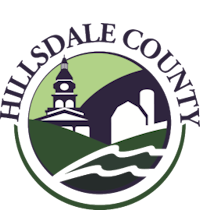What is Highly Pathogenic Avian Influenza?
Highly pathogenic avian influenza (HPAI), commonly called “bird flu,” is a virus found among various species of birds. HPAI viruses can infect domestic poultry, which includes chickens, turkeys, pheasants, quail, ducks, geese, and guinea fowl.
The virus also infects a wide variety of other birds, including wild migratory waterfowl. HPAI has even been detected in various species of mammals—presumably after the animals come into contact with infected wild birds. For more information on current detections in domestic poultry, livestock, and wildlife across the U.S., please visit the U.S. Department of Agriculture’s webpage.
Please see the Michigan Department of Agriculture & Rural Development (MDARD) Directors HPAI Risk Reduction Response Order, Dated May 1, 2024
Biosecurity
Cattle
Cattle Reminders: If cattle producers are noticing decreased lactation, low appetite, abnormal milk, abnormally tacky or loose feces, and/or low fever within their herds, please contact your veterinarian to determine the next appropriate steps to take before reporting.
- Talk to your veterinarian about any animal health-related concern.
- Isolate sick animals from others.
- Minimize the number of visitors to your farm.
- Prevent contact between your animals and wildlife.
Poultry
Poultry Reminders: HPAI is NOT evidenced by one dead bird or one coughing/sneezing bird while the remainder of the flock is acting normally. Instead, for small flock owners, look for two or more dead birds within a 24-hour period and symptoms in the rest of the flock (not eating, acting lethargic or sleepy with eyes closed, tucking their head close to their body, and appearing to be puffed up).
Whether you have a few backyard birds or a large commercial flock, following these biosecurity measures can help protect Michigan’s domestic birds:
- Prevent contact between domestic and wild birds by bringing them indoors or ensuring their outdoor area is fully enclosed.
- Wash your hands before and after handling birds as well as when moving between different coops.
- Disinfect boots and other gear when moving between coops.
- Do not share equipment or other supplies between coops or other farms.
- Clean and disinfect equipment and other supplies between uses. If it cannot be disinfected, discard it.
- Use well or municipal water as drinking water for birds.
- Keep poultry feed secure so there is no contact between the feed/feed ingredients and wild birds or rodents.
For the most up to date information and links please visit the Michigan Department of Agriculture & Rural Development (MDARD) Avian Influenza website.
